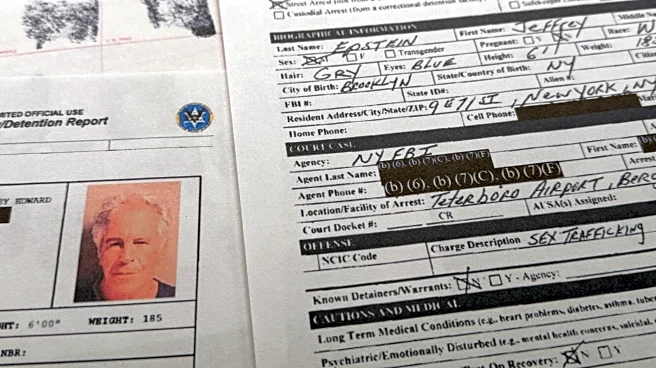What is the story about?
What's Happening?
The Department of Defense is discharging transgender troops by utilizing medical diagnoses of gender dysphoria, a condition that was previously required for them to continue serving. This action follows a new ban enacted by President Trump, which is set to take effect by December 1. Transgender service members, who were initially told to obtain a diagnosis to remain in the military, are now facing administrative leave based on those same records. The policy shift has led to significant distress among affected troops, who feel betrayed by the system. Legal experts argue that the process is unfair and potentially illegal, as it denies due process and alters long-standing military procedures.
Why It's Important?
This development has significant implications for military readiness and the rights of transgender individuals in the armed forces. The policy could lead to a loss of experienced personnel, affecting military operations and recruitment. It also raises legal and ethical concerns about discrimination and the violation of service members' rights. The move could impact the morale and trust within the military, as well as influence public opinion on transgender rights and military policies. The broader societal implications include potential backlash from civil rights groups and increased scrutiny of military practices regarding diversity and inclusion.
What's Next?
The affected service members and their legal representatives are likely to challenge the policy through legal avenues, potentially leading to court cases that could set precedents for military and civil rights law. The Department of Defense may face pressure from advocacy groups and lawmakers to reconsider or modify the policy. The situation could also influence future legislative or executive actions regarding the treatment of transgender individuals in the military and other federal institutions.

















